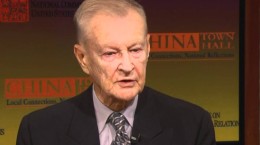Looming US Fed rate rise, the economic slowdown in China, falling commodity prices and conflict are the most immediate catalysts for risk to the global economy, but the impact would be most acutely felt in emerging and developing markets. In fact, the developed economies may be set for modest gains. “In advanced economies, economic activity is projected to pick up modestly in the 2nd half of the year and into 2016. In emerging economies, growth this year is projected to slow again relative to 2014; some rebound is projected next year, as conditions in distressed economies, while remaining difficult, are projected to improve.”
A Tale of Two Cities?
- Advanced economies should maintain supportive policies. In most advanced economies substantial output gaps and below-target inflation suggest that the monetary stance must stay accommodative. Fiscal policy should remain growth-friendly and be anchored in credible medium-term plans. Managing high public debt in a low-growth and low-inflation environment remains a key challenge.
- In many emerging economies, policy space to support growth remains limited. The commodity price declines over the past year have alleviated inflation pressures and mitigated external vulnerabilities in net commodity importers, but increased external and fiscal vulnerabilities in commodity exporters. Oil exporters that have accumulated savings and have fiscal space can let fiscal deficits increase and allow a more gradual adjustment of public spending. For floaters with less policy space, exchange rate flexibility will be a critical buffer to the shock. This may require improving macroeconomic policy frameworks in some countries and keeping balance sheet exposures manageable.
- Decisive structural reforms are needed to raise potential output and productivity across the G-2 members. Labor market reforms in advanced economies undergoing population aging should aim at raising labor participation, and actions to increase labor demand and remove impediments to employment are also needed in euro area economies and some emerging markets. Reforms to improve the functioning of product markets are also needed in Japan and the euro area, and reforms to improve productivity and raise potential output are key in many emerging economies. Joint policy efforts by deficit and surplus economies are needed to reduce excess imbalances while sustaining growth. (Read More of IMF Report: “IMF Note on Global Prospects & Policy Challenges“




